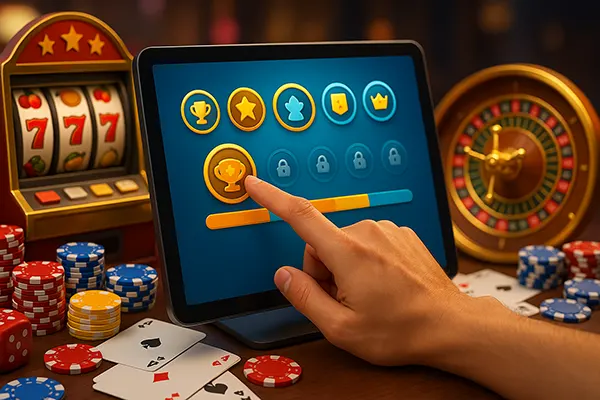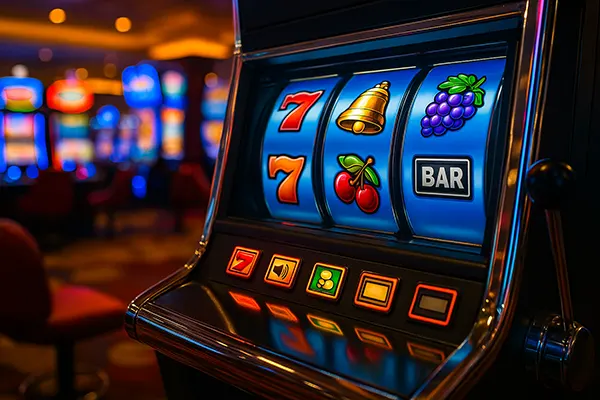Gambling: types, types, history

Gambling has been known for centuries. The word “excitement” itself has similar etymological forms in different languages of the world. Games have become not just an entertainment option, but also served as an incentive for the development of mathematical statistics and probability theory.
Now casinos and gambling houses receive huge incomes thanks to a large number of clients. But gradually the focus is shifting towards online casinos. An increasing number of players prefer to play from the comfort of their homes.
Types of gambling
Currently, there are a large number of gambling entertainment. Among them, it is worth noting several varieties:
- Card games.
- Roulette.
- Bones.
- Dominoes.
- Lotteries.
- Slot machines.
- Sports betting.
In general, any game can be called gambling if the victory in it largely depends on luck and is expressed in receiving a monetary reward.
Card games
It is believed that card games were invented in France at the end of the 13th century. There is a legend that the first playing cards were invented by one of the courtiers of King Charles the Sixth. However, there is another version, according to which this entertainment first appeared in China in the 10th century. Only a few centuries later, European travelers distributed maps on their continent.
Interestingly, classic suits appeared only in the 15th century. Before that, swords, shields, cups, crowns and much more could be depicted on the cards. They were made by hand. At that time, all the cards were drawn. Only with the advent of modern technology was it possible to speed up the production of maps by printing images.
Initially, in Europe, card games were especially popular in France. Already in the 18th century it was considered fashionable to visit gambling houses and spend your free time there. The popularity of card games has become so high that the government began to monitor the release and distribution of cards. And before 1945, taxes were already included in their cost.

Roulette
There are also many rumors about the origin of roulette. It is believed that the French monarchs are related to its creation. Some scientists claim that the famous mathematician Blaise Pascal created the roulette wheel. Not without a version of the Chinese origin of the game. It is believed that the progenitor of roulette was the Chinese puzzle, in which it was necessary to arrange 37 images of animals in a certain order. Gradually, the figures were replaced by numbers and began to be placed around the circumference.
In any case, the popularity of roulette in Europe has become high and it appears in all gambling houses. Over time, the fashion for this game has moved to other continents.
Lotteries
The first lotteries were held in the 5th century. At that time they were used to replenish the state treasury. Gradually, lotteries spread first throughout Europe, and then to other continents.
By themselves, lotteries represent a prize drawing in which the winning fund is formed through the sale of tickets. On a certain date, a random selection of winners is carried out, of which there may be several. The winnings are divided between them. It is the unpredictability and randomness that make the lottery one of the most popular gambling entertainments.
What was played in ancient times
It is now known that gambling was popular in Ancient Egypt, Ancient Greece and Rome. Found traces of such entertainment and the ruins of Indian civilizations. Dice, which are mentioned in ancient Indian literary monuments, are considered the very first form of the game.
Gambling was also known in ancient Egypt. Board games were played here 5,000 years ago. There are references to this on many tombs of the Egyptian pharaohs.
Gambling was also popular throughout ancient Greece, except for Sparta. The famous philosopher Plutarch mentions them in his writings. There are references to gambling in ancient Roman laws. In the tribes of the ancient Germans, due to a loss, a person could be enslaved by the winner.
Casino History
The first gambling establishments appeared several centuries before our era on the territory of Greece and Rome. They constantly developed, and in the middle of the 19th century they began to be called casinos. Although in Italy the first casino appeared in 1638 before the appearance of the term itself. Now casinos are the most popular in Asian countries. The attitude towards gambling in Europe has become more relaxed. In many countries, gambling activities are generally prohibited by law. That is why most of the casinos in Europe are located in Monte Carlo.




